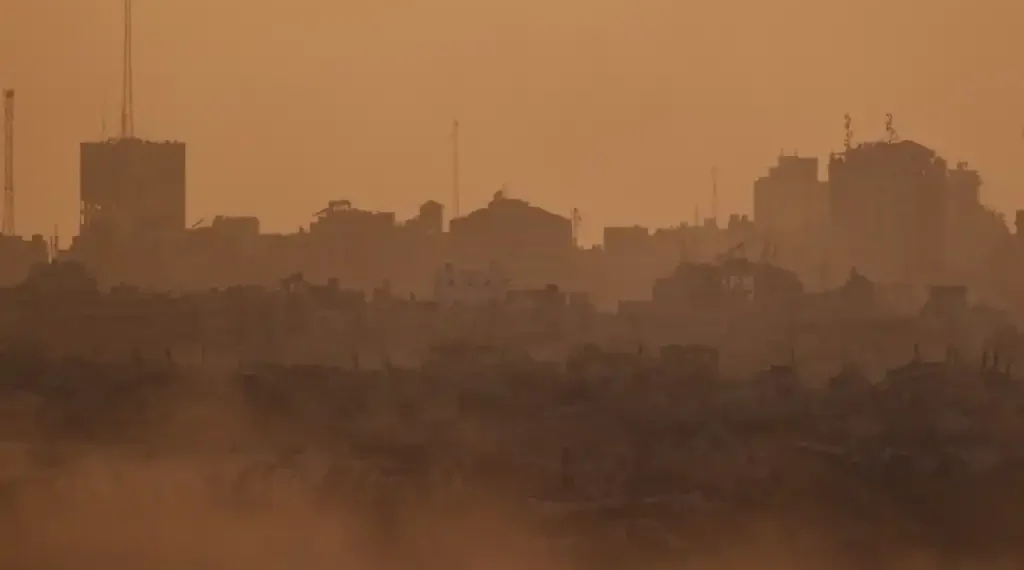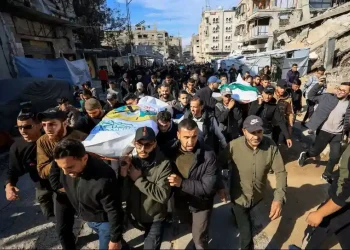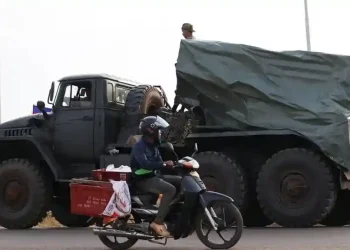Israel Plans to Retake Gaza City as Conflict with Hamas Enters New Phase
Published: August 8, 2025, 14:00 U.S. Eastern Time
TEL AVIV, Israel — Israel’s government has announced plans to retake Gaza City in what could mark a significant escalation in its nearly two-year conflict with Hamas. The decision, made following a late-night Security Cabinet meeting, comes despite mounting international appeals for a ceasefire and concerns for the fate of remaining hostages.
The move follows months of intense air and ground operations that have already devastated much of the Gaza Strip, displacing the majority of its population and triggering widespread humanitarian concerns. International observers warn that a new major offensive could deepen the existing crisis, which aid agencies describe as one of the worst in decades.
Security Cabinet Decision and Strategic Shift
Prime Minister Benjamin Netanyahu’s office confirmed early Friday that the military has been instructed to prepare for control of Gaza City while ensuring humanitarian assistance to civilians outside combat zones.
The decision follows remarks Netanyahu made in an interview with Fox News, where he outlined an ambition to secure all of Gaza to remove Hamas from power. While Israel already controls about three-quarters of the territory, the Security Cabinet opted for a more limited plan—possibly as leverage in ceasefire negotiations with Hamas.
According to Israeli media reports, Chief of Staff Lt. Gen. Eyal Zamir cautioned that fully occupying Gaza could endanger roughly 20 hostages believed to be alive and further strain the military after prolonged operations across the region.
Gaza City’s Strategic and Humanitarian Importance
Once Gaza’s largest urban center, Gaza City has endured repeated bombardments and raids since the conflict began. Although much of the city has been damaged, it remains one of the few areas not converted into a buffer zone or placed under full evacuation orders.
Humanitarian organizations warn that a new ground offensive could displace tens of thousands more civilians and disrupt fragile aid delivery efforts. The United Nations has already described the situation as “catastrophic,” with widespread hunger and shortages of medical supplies.
Local residents have voiced despair over the prospect of renewed fighting. “There is nothing left to occupy,” said Maysaa al-Heila, a displaced Palestinian woman living in a camp. “There is no Gaza left.”
Hostage Crisis Remains Central to Debate
The conflict, now in its 22nd month, began after the October 7, 2023, attack by Hamas-led militants, in which 1,200 people were killed and 251 others were abducted. While most hostages have since been released through negotiated deals, Israel estimates around 50 remain in Gaza, with 20 believed to be alive.
On Thursday, relatives of hostages sailed toward Gaza’s maritime border to amplify calls for their release. Some family members have publicly accused Netanyahu of prolonging the war to satisfy hardline political allies, who advocate expanding military operations, relocating Gaza’s population, and reestablishing Jewish settlements dismantled in 2005.
Civilian Casualties and Food Crisis
Gaza’s Health Ministry, part of the Hamas-run administration, reports over 61,000 Palestinian deaths since the war began. The United Nations and independent experts consider these figures the most reliable available, although Israel disputes the numbers without providing its own estimates.
On Thursday alone, at least 42 Palestinians were killed in airstrikes and shootings, including 13 individuals who were reportedly seeking food near an Israeli military zone in southern Gaza. The area, known as the Morag Corridor, has been the site of repeated deadly incidents as desperate civilians attempt to access aid convoys.
Controversy Over Aid Distribution
The Gaza Humanitarian Foundation (GHF), established with U.S. and Israeli support, has become a focal point of controversy. Intended as an alternative to the U.N.’s aid delivery system, GHF faces criticism for its distribution methods.
Medical charity Doctors Without Borders (MSF) released a report accusing GHF operations of creating “chaotic and dangerous conditions” that have resulted in hundreds of casualties. Between June 7 and July 20, MSF treated more than 1,300 people injured near GHF sites, including 147 with gunshot wounds—41 of them children.
MSF described the system as “either reckless negligence or a deliberately designed death trap.” GHF has denied the allegations, calling them “false and disgraceful,” and accused MSF of amplifying what it claims is a Hamas-led disinformation campaign.
International Response and Outlook
The United Nations continues to call for an immediate ceasefire, warning that further military escalation in Gaza City will make already dire humanitarian conditions unmanageable. Meanwhile, Israel maintains that its operations are essential to ensure long-term security by dismantling Hamas’s military infrastructure.
Diplomatic analysts say the current strategy may serve multiple purposes—militarily pressuring Hamas, placating domestic political factions, and strengthening Israel’s negotiating position in any future ceasefire talks.
Whether the move to retake Gaza City will achieve those objectives remains uncertain, but for civilians in the territory, the announcement signals yet another period of fear, displacement, and uncertainty.
This article was rewritten by JournosNews.com based on verified reporting from trusted sources. The content has been independently reviewed, fact-checked, and edited for accuracy, neutrality, tone, and global readability in accordance with Google News and AdSense standards.
All opinions, quotes, or statements from contributors, experts, or sourced organizations do not necessarily reflect the views of JournosNews.com. JournosNews.com maintains full editorial independence from any external funders, sponsors, or organizations.
Stay informed with JournosNews.com — your trusted source for verified global reporting and in-depth analysis. Follow us on Google News, BlueSky, and X for real-time updates.














